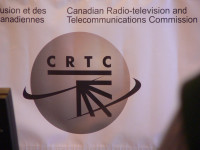The Netflix – CRTC battle has generated considerable attention, but Netflix is not alone in contesting the CRTC’s authority to regulate Internet video services. As I suggested in a post yesterday, Google has adopted a similar position, refusing to provide the Commission with all of the information it was seeking. While the Google and Netflix submissions have oddly not yet been posted by the CRTC (all others have), the Globe obtained a copy that confirms Google’s position that it believes it also falls outside the Broadcasting Act. According to the report (also not online), Google declined to provide some requested data, noting that “Google does not publish or otherwise disclose this commercially sensitive business information.” The company adopted the position that its disclosures were voluntary and that it is not part of the Canadian broadcast system.
The Google position is notable because it is presumably not based on the question of presence within Canada, since Google maintains a significant Canadian presence. Rather, the core challenge will likely focus on whether a service such as Youtube (which once went by the slogan “Broadcast Yourself”) can properly be characterized as broadcasting for the purposes of current Canadian law.











